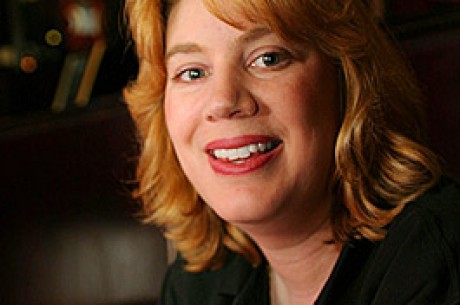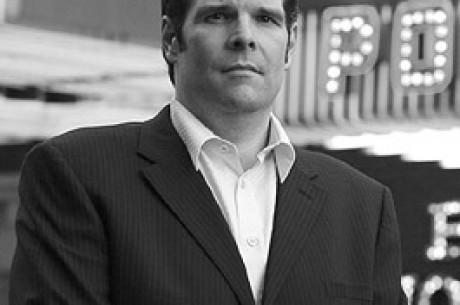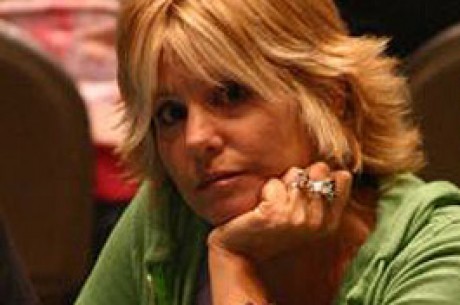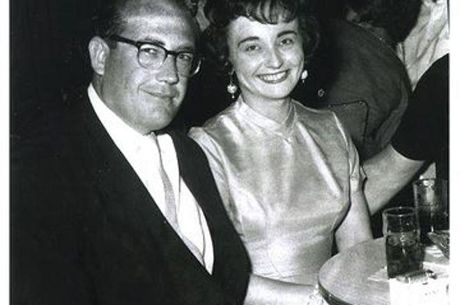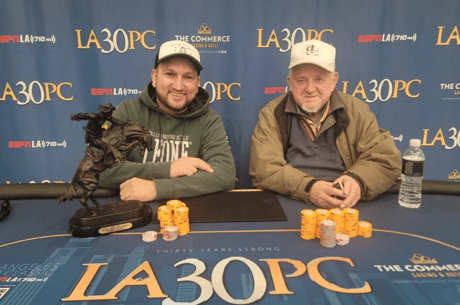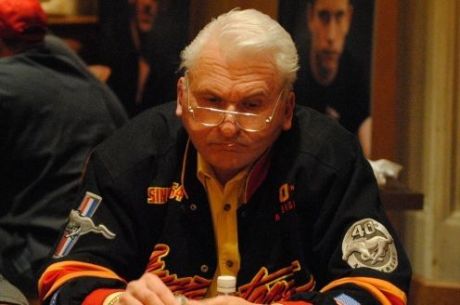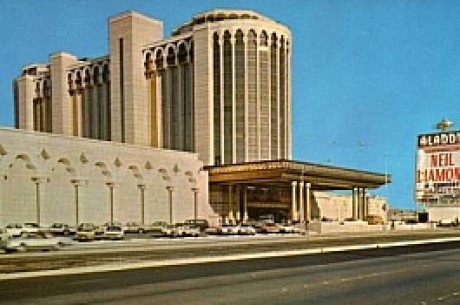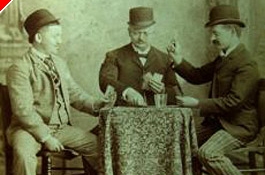Legends of Poker: Dan Harrington
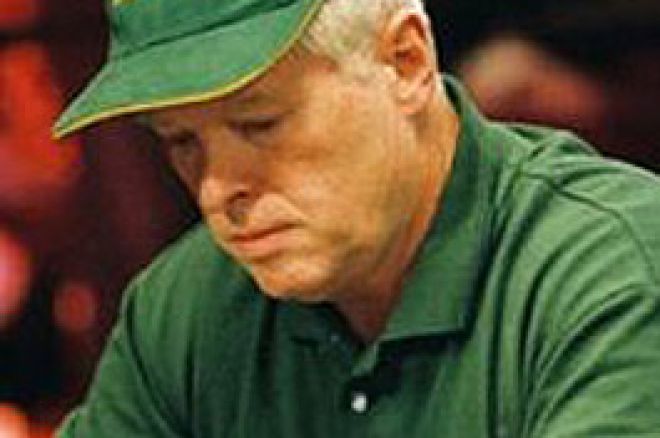
I always thought Howard Lederer was quiet at the poker table, but when compared to Dan Harrington he is downright chatty. Dan's economy with words is only matched by his economy with money. At the poker table Dan is easily pegged as a rock. He's tighter than the safe at Fort Knox, and his stacks are twice as tough to break into. But somehow, just somehow, this man has become one of the best-known poker players in the world.
Dan was born and raised in Boston, and still supports his local team by sporting an all-green baseball cap with the Red Sox name embroidered across it. He excelled at all types of games as a child, and played chess, backgammon and poker while attending Suffolk University before continuing on at Suffolk Law School in the Juris Doctor program. After graduating, he spent nearly 10 years working in Boston as a bankruptcy lawyer, but the work made him weary - he felt stagnant and unfulfilled, and like the poker player he would become, Dan knew when to fold a losing hand.
In 1980 he moved south, to Philadelphia, and began buying and selling stocks. Harrington found the speculation more fulfilling and more fun than practicing law, and he even found time to play poker, usually in New York. Now I don't know what the deal was with the old Mayfair Club in New York, but the club, which originally featured bridge, became a wealth-spring of knowledge and training for future poker stars.
As the popularity of bridge faded, poker took on a new luster, and players spent more time betting chips than bidding trumps. Eventually, the dominant game at the Mayfair Club was hold'em, and the core group of players included Dan, Jay Heimowitz, Al Krux, Erik Seidel and Steve Zolotow. Now maybe they were smarter than the rest of us, or maybe there was something in the water, but something was certainly up.
By 1990, Al Krux had placed 6th in the World Series of Poker main event, and in 1988, Steve Zolotow took 5th in an Omaha tournament while Erik Seidel was finishing second to Johnny Chan in the main event. However, in 1987, the $10,000 tournament was simply dominated by the Mayfair Club regulars.
Approaching the final table of the WSOP main event, Jay Heimowitz was knocked out in 11th place. Next came Harrington, playing in his first championship event, who finished 6th and collected $44,000. A young Howard Lederer, playing in his first WSOP event finished 5th and collected $56,000. How did three of these players do so well in the tournament?
Well, the fact that these friends and adversaries spent hours discussing hands after each night's play at the Mayfair may have something to do with their success. Or perhaps they are all just extraordinary players. Bob Ciaffone, who outlasted them all and finished third that year adds, "Dan (who was a onetime roommate) is one of the smartest people I've ever met, plus a real nice guy; and even then Howard was excellent."
Dan continued playing poker and moved to California in 1989. He occasionally played in tournaments, but his list of entries is much smaller than any other well-known poker pro. Perhaps, because he really isn't a professional player. Harrington runs Anchor Loans from his Santa Monica offices and still invests in real estate and the stock market, and that explains why he played so little for a number of years.
At the WSOP in 1995, Dan obtained one of his goals - winning a gold bracelet. His win in the $2,500 No Limit Hold'em tournament game him a quarter-million dollars to play with, so he entered the $10,000 main event again. Just a few days after his first win, Harrington made the final table and stared at his stack of chips. He wasn't leading, and in typical Harrington fashion, assessed his chances of winning and then proposed a nine-way split between the remaining players. They passed. After three players were knocked out, Dan's stack stood at just over $532,000 and he held down second place to Howard Goldfarb's $1.2 million. Again, Harrington proposed a split.
This time, he tried to explain that with $2.2 million remaining in prize money they could each walk with enough money to invest and live comfortably. He even offered to help them invest their winnings, but the other players passed on his offer - so he busted 'em all and took the $1 million dollar first-place check for himself.
For most players, making the final table of the Main Event at the WSOP would be a once in a lifetime event, but Harrington isn't like most players. After taking a short vacation, Dan went to Europe in July and won the Festival of Poker in London and took home over $100,000, and at the following year's WSOP, Dan finished the main event in 17th place.
Work at his Santa Monica firm took most of his time, but Harrington returned to the WSOP in 2003 and made the final table again, taking down third place and winning $650,000. In 2004, Dan repeated the feat, finishing fourth in a much larger field and won $1,500,000.
This past year (2005), Dan missed the final table at the WSOP, but in the 2nd Annual Doyle Brunson North American Poker Championship (a World Poker Tour event) held at the Bellagio, he continued adding to his legend by just missing the championship and finishing second for $620,000.
I 'm not sure what the future holds, but even if the upcoming WSOP final event attracts 10,000 entrants I still wouldn't advise betting against one of poker's true legends, Dan Harrington.
Ed Note: Start your own legendary career by playing at Pacific Poker

